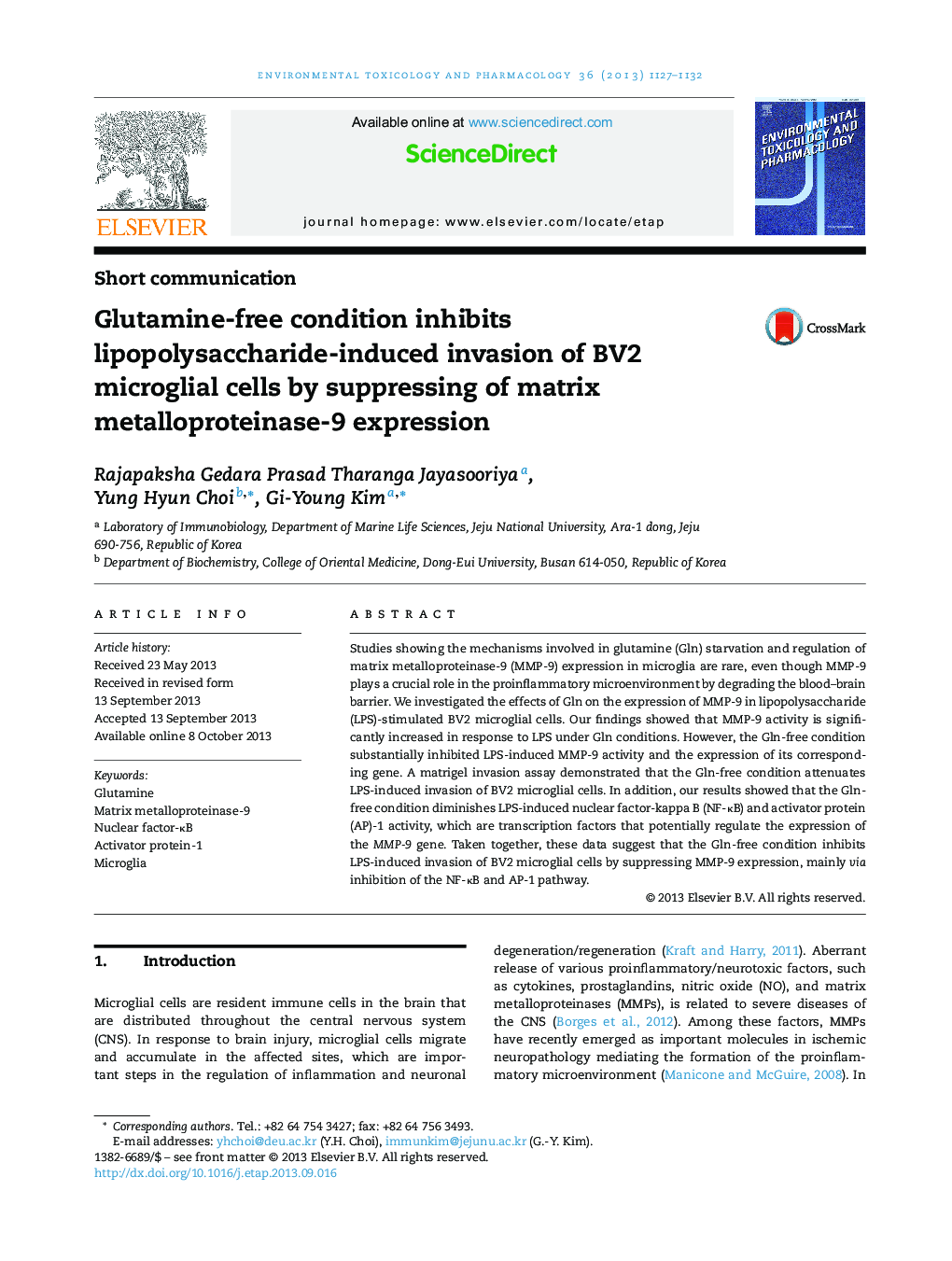| Article ID | Journal | Published Year | Pages | File Type |
|---|---|---|---|---|
| 2583130 | Environmental Toxicology and Pharmacology | 2013 | 6 Pages |
Studies showing the mechanisms involved in glutamine (Gln) starvation and regulation of matrix metalloproteinase-9 (MMP-9) expression in microglia are rare, even though MMP-9 plays a crucial role in the proinflammatory microenvironment by degrading the blood–brain barrier. We investigated the effects of Gln on the expression of MMP-9 in lipopolysaccharide (LPS)-stimulated BV2 microglial cells. Our findings showed that MMP-9 activity is significantly increased in response to LPS under Gln conditions. However, the Gln-free condition substantially inhibited LPS-induced MMP-9 activity and the expression of its corresponding gene. A matrigel invasion assay demonstrated that the Gln-free condition attenuates LPS-induced invasion of BV2 microglial cells. In addition, our results showed that the Gln-free condition diminishes LPS-induced nuclear factor-kappa B (NF-κB) and activator protein (AP)-1 activity, which are transcription factors that potentially regulate the expression of the MMP-9 gene. Taken together, these data suggest that the Gln-free condition inhibits LPS-induced invasion of BV2 microglial cells by suppressing MMP-9 expression, mainly via inhibition of the NF-κB and AP-1 pathway.
